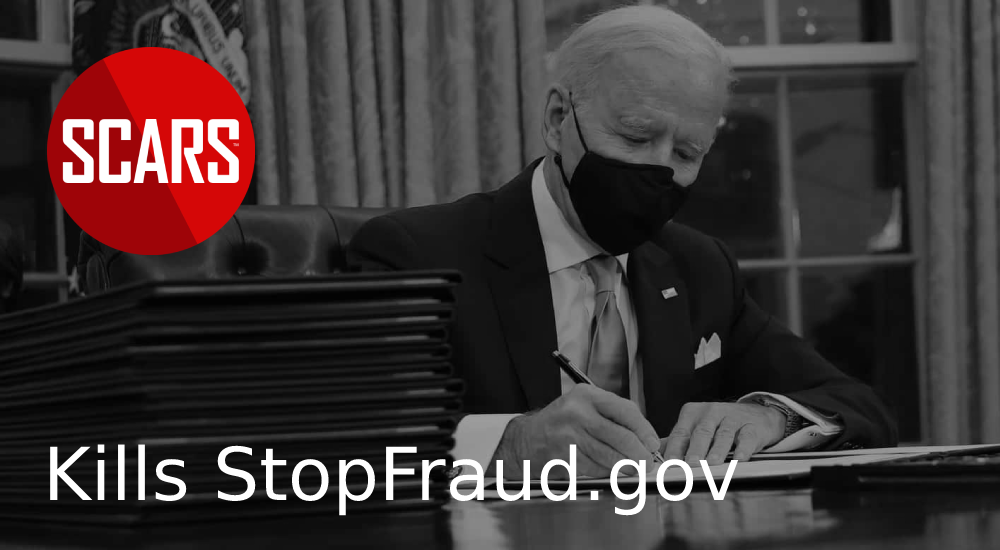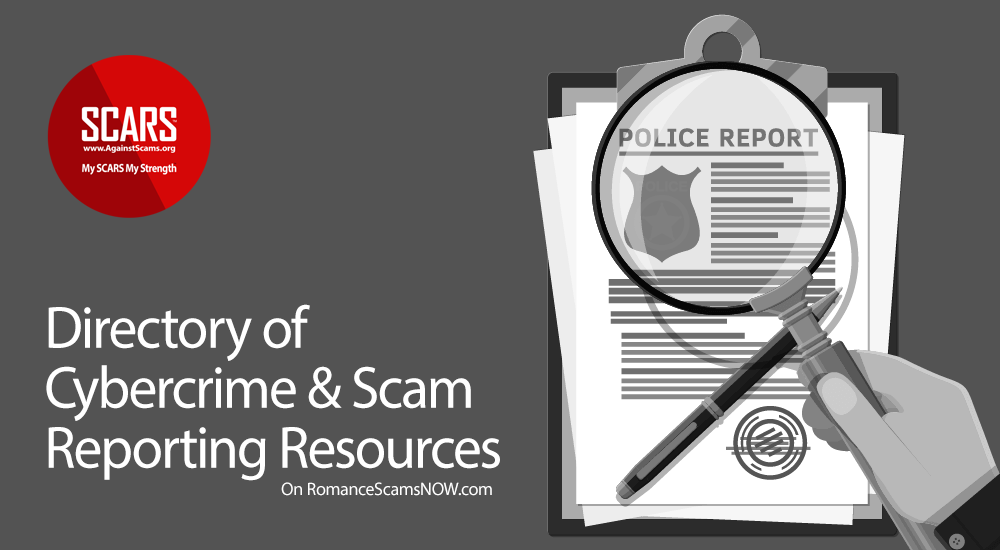
SCARS Institute’s Encyclopedia of Scams™ Published Continuously for 25 Years

Author:
• SCARS Institute Encyclopedia of Scams Editorial Team – Society of Citizens Against Relationship Scams Inc.
SCARS Encyclopedia of Scams Article Abstract
Understanding the roles and responsibilities of different law enforcement and regulatory agencies is crucial for taking effective action against online criminals.
While law enforcement agencies, such as local police, national agencies like the FBI, and international bodies like Europol, are responsible for investigating crimes and arresting suspects, other entities like Interpol and the FTC play distinct but complementary roles.
Interpol coordinates information sharing between national agencies but does not conduct investigations itself, while the FTC handles complaints, investigates regulatory violations, and routes criminal issues to appropriate agencies.
Recognizing the functions and limitations of these organizations helps in making informed decisions when reporting crimes and seeking justice.

Confusion About Law Enforcement
Thank you Vianey Gonzalez of SCARS|Latinoamerica for asking this question
LAW ENFORCEMENT
Law enforcement agencies around the world have the mission of accepting reports from victims, investigating crimes, and arresting alleged criminals. That is their job regardless of which country they are in.
There are also, different levels for their agencies of public security. There are local, state or provincial, and national. They can also have specializations, such as anti-terrorist, financial crimes, regulatory offenses, etc.
EUROPOL
In the case of EUROPOL – this is a police – law enforcement agency of the Council of Europe – in other words, Europe acting as a country has a national police force called Europol, as well as a national Justice agency called Eurojust. Each member country in the European Union also has its own local, regional, and national police agencies with jurisdiction in its country.
This is one of the unique things about Europe – it acts as a single country in many ways, and there is no equivalent anywhere else.
When reporting a crime in Europe, it is not (generally) reported to Europol because Europol is NOT a first responder – each country provides that role on the local level. Some crimes, such as cybercrime are reported at the regional or national levels, only the most serious crimes go directly to Europol.
Europol does have a central information resource with EC3 – https://www.europol.europa.eu/about-europol/european-cybercrime-centre-ec3 but it is not a replacement for local/regional/national law enforcement – in that way, it is very different from IC3.gov which is the FBI’s reporting portal.
Agencies like the FBI, Secret Service, RCMP, etc., are also national law enforcement.
INTERPOL
Interpol is NOT a law enforcement agency. It is a coordination clearinghouse for information about crimes to its member countries.
It collects information and shares it between the national agencies that are members of Interpol. In this capacity, it is a nonprofit nongovernmental organization.
Interpol does not investigate crimes. It has no police officers. Though, it does coordinate with police agencies around the world in specialized ways to aid them in doing their work.
Crimes are not reported to Interpol by the public – they are not a first responder.
FTC – FEDERAL TRADE COMMISSION
Similarly but different, in the United States we have several agencies that have specific regulatory authority. One of those is the FTC.
Reporting to the FTC: https://reportfraud.ftc.gov/#/?orgcode=SCARS
The FTC is also not a law enforcement agency – exaction, though sometimes they are more like one. They do accept complaints, and they do investigate, but then the similarity with law enforcement ends. To enforce the law they go to court – usually civil court at the federal level to obtain judgments and orders – many times those will be enforced by police if needed.
They will also act as a clearinghouse for complaints and routing criminal issues to other law enforcement agencies, such as the FBI/DoJ, Homeland Security, Secret Service, SEC, etc. The FTC plays well with others, unlike the FBI. In this way, they are similar to Interpol and to Europol.
The U.S. has a couple of hundred such agencies like the FTC – such as the FCC, EPA, and so many that you need a directory. Each has its regulatory mandates.
The value of the FTC as a reporting agency is that it distributes complaints where they need to go. Other agencies do not – it begins and ends in their databases – such as IC3.gov.
U.S. SECRET SERVICE
U.S. Secret Service – the Secret Service wants to talk to you
- Find the nearest U.S. Secret Service Field Office to you
https://www.secretservice.gov/contact/field-offices - Crypto Scams can also be reported by email to: CryptoFraud@SecretService.gov
- Victims who require further assistance may call 1-888-813-USSS (888-813-8777)
- Deaf and hard of hearing 202-406-5370
More about USSS Investigations: Financial and Cyber Crime Investigations (secretservice.gov)
Summary
Understanding what law enforcement is or is not is central to being able to take effective action against online criminals.
SCARS publishes a directory of these agencies at reporting.AgainstScams.org
It is important that you understand what resources are being provided to you to help you make informed decisions about your actions.
Please be very careful of accepting factual information from anyone who is clearly not an expert in these subjects.
Please share your feedback with us?
-/ 30 /-
What do you think about this?
Please share your thoughts in a comment below!
LEAVE A COMMENT?
Thank you for your comment. You may receive an email to follow up. We never share your data with marketers.
Recent Comments
On Other Articles
- on Love Bombing And How Romance Scam Victims Are Forced To Feel: “I was love bombed to the point that I would do just about anything for the scammer(s). I was told…” Feb 11, 14:24
- on Dani Daniels (Kira Lee Orsag): Another Scammer’s Favorite: “You provide a valuable service! I wish more people knew about it!” Feb 10, 15:05
- on Danielle Delaunay/Danielle Genevieve – Stolen Identity/Stolen Photos – Impersonation Victim UPDATED 2024: “We highly recommend that you simply turn away form the scam and scammers, and focus on the development of a…” Feb 4, 19:47
- on The Art Of Deception: The Fundamental Principals Of Successful Deceptions – 2024: “I experienced many of the deceptive tactics that romance scammers use. I was told various stories of hardship and why…” Feb 4, 15:27
- on Danielle Delaunay/Danielle Genevieve – Stolen Identity/Stolen Photos – Impersonation Victim UPDATED 2024: “Yes, I’m in that exact situation also. “Danielle” has seriously scammed me for 3 years now. “She” (he) doesn’t know…” Feb 4, 14:58
- on An Essay on Justice and Money Recovery – 2026: “you are so right I accidentally clicked on online justice I signed an agreement for 12k upfront but cd only…” Feb 3, 08:16
- on The SCARS Institute Top 50 Celebrity Impersonation Scams – 2025: “Quora has had visits from scammers pretending to be Keanu Reeves and Paul McCartney in 2025 and 2026.” Jan 27, 17:45
- on Scam Victims Should Limit Their Exposure To Scam News & Scammer Photos: “I used to look at scammers photos all the time; however, I don’t feel the need to do it anymore.…” Jan 26, 23:19
- on After A Scam, No One Can Tell You How You Will React: “This article was very informative, my scams happened 5 years ago; however, l do remember several of those emotions and/or…” Jan 23, 17:17
- on Situational Awareness and How Trauma Makes Scam Victims Less Safe – 2024: “I need to be more observant and I am practicing situational awareness. I’m saving this article to remind me of…” Jan 21, 22:55
ARTICLE META
Important Information for New Scam Victims
- Please visit www.ScamVictimsSupport.org – a SCARS Website for New Scam Victims & Sextortion Victims
- Enroll in FREE SCARS Scam Survivor’s School now at www.SCARSeducation.org
- Please visit www.ScamPsychology.org – to more fully understand the psychological concepts involved in scams and scam victim recovery
If you are looking for local trauma counselors please visit counseling.AgainstScams.org or join SCARS for our counseling/therapy benefit: membership.AgainstScams.org
If you need to speak with someone now, you can dial 988 or find phone numbers for crisis hotlines all around the world here: www.opencounseling.com/suicide-hotlines
A Note About Labeling!
We often use the term ‘scam victim’ in our articles, but this is a convenience to help those searching for information in search engines like Google. It is just a convenience and has no deeper meaning. If you have come through such an experience, YOU are a Survivor! It was not your fault. You are not alone! Axios!
A Question of Trust
At the SCARS Institute, we invite you to do your own research on the topics we speak about and publish, Our team investigates the subject being discussed, especially when it comes to understanding the scam victims-survivors experience. You can do Google searches but in many cases, you will have to wade through scientific papers and studies. However, remember that biases and perspectives matter and influence the outcome. Regardless, we encourage you to explore these topics as thoroughly as you can for your own awareness.
Statement About Victim Blaming
SCARS Institute articles examine different aspects of the scam victim experience, as well as those who may have been secondary victims. This work focuses on understanding victimization through the science of victimology, including common psychological and behavioral responses. The purpose is to help victims and survivors understand why these crimes occurred, reduce shame and self-blame, strengthen recovery programs and victim opportunities, and lower the risk of future victimization.
At times, these discussions may sound uncomfortable, overwhelming, or may be mistaken for blame. They are not. Scam victims are never blamed. Our goal is to explain the mechanisms of deception and the human responses that scammers exploit, and the processes that occur after the scam ends, so victims can better understand what happened to them and why it felt convincing at the time, and what the path looks like going forward.
Articles that address the psychology, neurology, physiology, and other characteristics of scams and the victim experience recognize that all people share cognitive and emotional traits that can be manipulated under the right conditions. These characteristics are not flaws. They are normal human functions that criminals deliberately exploit. Victims typically have little awareness of these mechanisms while a scam is unfolding and a very limited ability to control them. Awareness often comes only after the harm has occurred.
By explaining these processes, these articles help victims make sense of their experiences, understand common post-scam reactions, and identify ways to protect themselves moving forward. This knowledge supports recovery by replacing confusion and self-blame with clarity, context, and self-compassion.
Additional educational material on these topics is available at ScamPsychology.org – ScamsNOW.com and other SCARS Institute websites.
Psychology Disclaimer:
All articles about psychology and the human brain on this website are for information & education only
The information provided in this article is intended for educational and self-help purposes only and should not be construed as a substitute for professional therapy or counseling.
While any self-help techniques outlined herein may be beneficial for scam victims seeking to recover from their experience and move towards recovery, it is important to consult with a qualified mental health professional before initiating any course of action. Each individual’s experience and needs are unique, and what works for one person may not be suitable for another.
Additionally, any approach may not be appropriate for individuals with certain pre-existing mental health conditions or trauma histories. It is advisable to seek guidance from a licensed therapist or counselor who can provide personalized support, guidance, and treatment tailored to your specific needs.
If you are experiencing significant distress or emotional difficulties related to a scam or other traumatic event, please consult your doctor or mental health provider for appropriate care and support.
Also read our SCARS Institute Statement about Professional Care for Scam Victims – click here to go to our ScamsNOW.com website.
















Thank you. This information was exact and detailed and helps to understand the different levels of authority and what they can or cannot do. In my case, law enforcement just has not been helpful whether local or the FBI. I have spoken with a representative of the DOJ and I believe that is how I received the information about SCARS. For that I am thankful. You are all so new to me but this survivor school and the support have helped me feel that I am not a supremely stupid individual to have been frauded.
Today 8/23/24 I clicked on the link you provided for the directory: https://romancescamsnow.com/reporting-entity-directory/
I got the error 404 Message
The link works but sometimes is slow to display
Another great article!
The link you provided for the directory: https://romancescamsnow.com/reporting-entity-directory/
Does not work for me. I get an error 404 message.
Thank you for letting us know. It has been fixed.